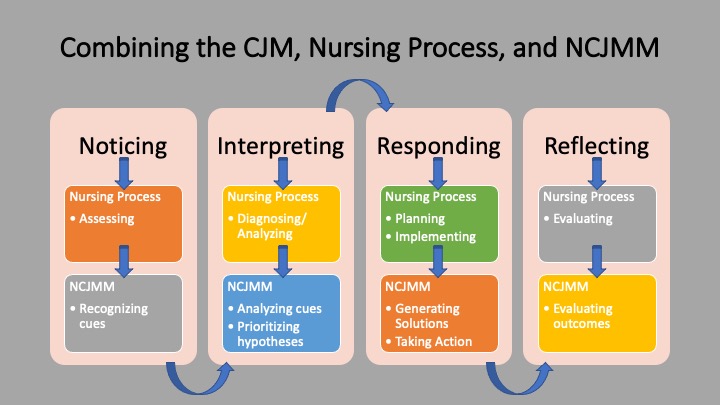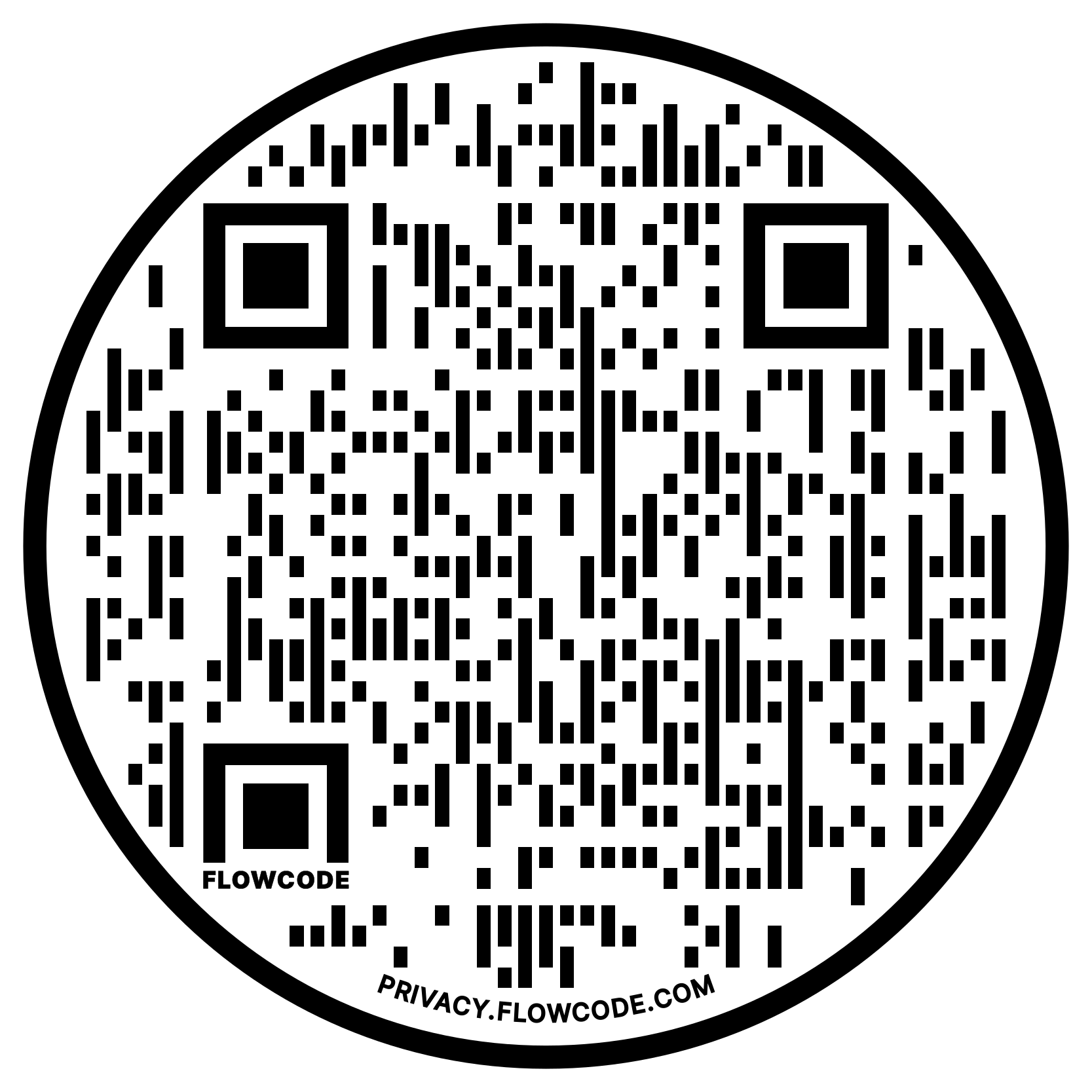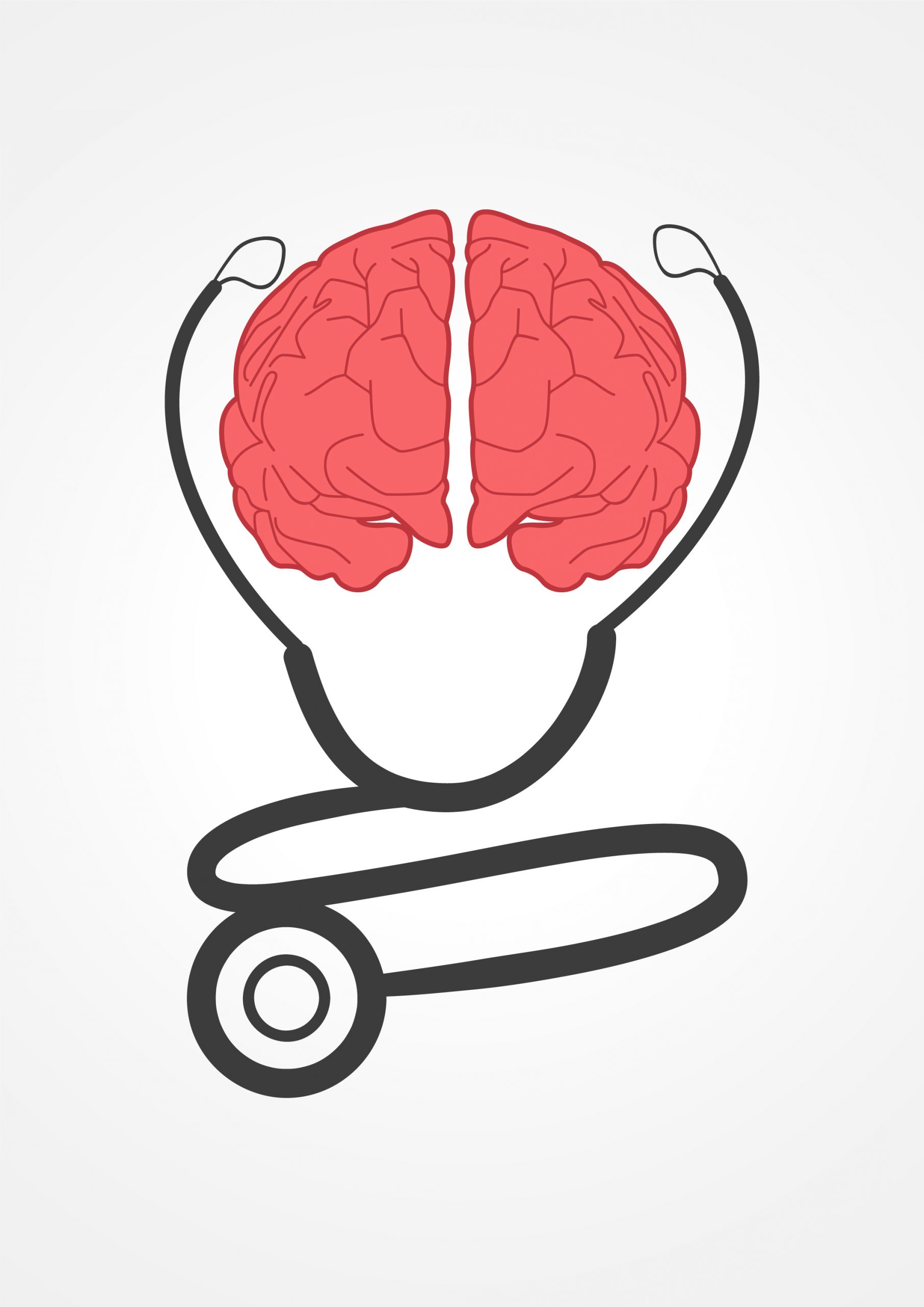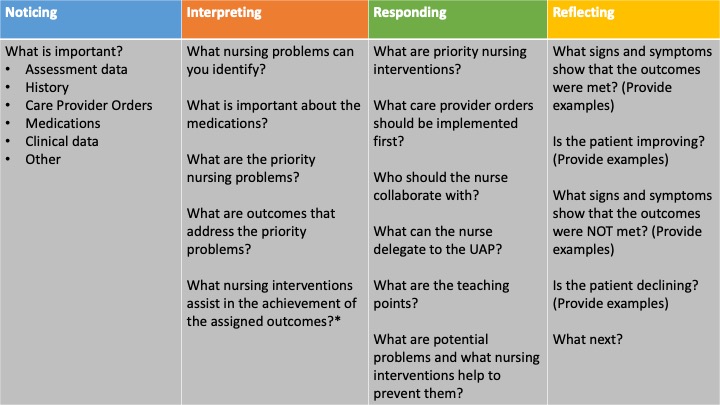In this issue of Changing Course we will Rethink the Nursing Care Plan. The change to the Next Generation NCLEX (NGN) is quickly approaching. Students currently enrolled in nursing programs must be ready to pass this redesigned licensing exam. The NGN emphasizes clinical judgment to prepare students for decision-making in nursing and real-world practice (National Council of State Boards of Nursing [NCSBN], 2022). Nurse educators must adapt teaching strategies to ensure student success on the NGN and in practice. The Next Generation Care Plan (NGCP) is a new care planning strategy that encourages students to think deeply, make decisions, and demonstrate nursing competencies.
Traditionally, the nursing care plan centers around the more than half-century old nursing process. While the nursing process is still useful, nurses must enter practice prepared to make clinical judgments and educators must develop strategies that meet the needs of 21st century nursing. According to the NCSBN (2018), 65% of nursing errors can be attributed to poor clinical judgment, while 20% of employers believe novice nurses are not prepared to make clinical judgments. Additionally, two recurring reasons new-to-practice nurses have disciplinary action against their licenses are failure to notice and failure to act (Sherrill, 2020). Nursing’s scope of practice has rapidly evolved since the the birth of the nursing process and new nurses are now expected to notice data, make clinical judgments and take action. It is definitely time to rethink the nursing care plan!
Because clinical judgment is central to success on the NGN and for entry to practice, the NGCP combines the Clinical Judgment Model (CJM) (Tanner, 2006), the nursing process, and the NCSBN Nursing Clinical Judgment Measurement Model (NCJMM) to foster the deep thinking necessary to make sound decisions in clinical practice.

The Next Generation Care Plan (NGCP)
The NGCP is a template that prompts students to think about noticing, interpreting, responding, and reflecting, the tenets of the CJM (Tanner, 2006), all while focusing on layers three and four of the NCJMM (NCSBN, 2022). The template is designed to be used with patient scenarios. As students progress through the NGCP, they use clinical judgment to make decisions and reflect on actual or potential outcomes.
The Next Generation Care Plan (NGCP) Template
*Provide evidence-based cited and referenced rationales.
Everything Old is New Again . . .
The NGCP can be applied to currently used case studies, simulations, and other nursing educational activities. It is an easy way to transform previously used materials into new and improved exercises for nursing students.
Repetition Creates Muscle Memory . . .
The NGCP creates a framework for thought processes, and when used repeatedly as a teaching strategy across the curriculum, can reframe student thinking patterns. This care planning strategy can be used individually, or collaboratively as a team. The NGCP can be used in the classroom, clinical, simulation and lab.
Level Up . . .
The NGCP can be scaffolded to increase in complexity as nursing students progress toward entry to practice. To create more challenging experiences, don’t change the NGCP, change the scenario. Here is an example of the NGCP for use in clinical:
-
Complete the NGCP on your assigned patient during the clinical day.
-
Be ready to share your completed NGCP in post-conference.
As practice scenarios increase in complexity, so will the clinical judgment needed to complete the NGCP.
Show What They Know . . .
The NGCP helps students demonstrate what they can do based on what they know. The American American Association of Colleges of Nursing’s (AACN) Essentials (AACN (a), 2021), calls for a transition to competency-based education, a process in which students master competencies through demonstration. The AACN established Competencies organized within Domains that nursing students must demonstrate before program completion. The NGCP supports meeting competencies across many Domains:
| Domain | Competency (Sub-Competencies) |
| Knowledge for Nursing Practice | 1.3 Demonstrate clinical judgment founded on a broad knowledge base (1.3a, b, c) |
| Person-Centered Care | 2.3 Integrate assessment skills in practice (2.3e) |
| Person-Centered Care | 2.4 Diagnose actual or potential health problems and needs (2.4b. c, d, e) |
| Person-Centered Care | 2.5 Develop a plan of care (2.5a, c, d, e, f, g) |
| Person-Centered Care | 2.6 Demonstrate accountability for care delivery (2.6a, c, d) |
| Person-Centered Care | 2.7 Evaluate outcomes of care (2.7a) |
| Person-Centered Care | 2.9 Provide care coordination (2.9c, d, e) |
| Scholarship for the Nursing Discipline | 4.2 Integrate best evidence into nursing practice (4.2c) |
| Interprofessional Partnerships | 6.1 Use knowledge of nursing and other professions to address healthcare needs (6.13a, b) |
(AACN (a), 2021)
Competence mastery through the NGCP can be assessed with a rubric, giving students the opportunity to be observed, for their work to be measured and to receive feedback. Competency assessment, an integral recommendation of the AACN Essentials, involves observation, judgment and feedback of student performance based on explicit criteria (AACN (b), 2021). Whether used as an in-class activity with real-time clarification of thought processes, or as a graded assignment with a rubric, the NGCP provides a means for educators to assess mastery of nursing competencies.
Sample NGCP Rubric

Making Progress . . .
In the words of Florence Nightingale “For us who Nurse, our Nursing is a thing, which, unless in it we are making progress every year, every month, every week, take my word for it we are going back. The more experience we gain, the more progress we can make.” Nursing is ever evolving, and the way we teach nursing also needs to change as the profession advances. Rethinking the Nursing Care Plan is more important now than ever. The NGCP is a care planning method that cultivates student thought processes as they progress toward their goal of passing the NCLEX and becoming a nurse.
Coming up in the next edition of Changing Course . . . Stimulating Student Engagement with Social Annotation.
References

